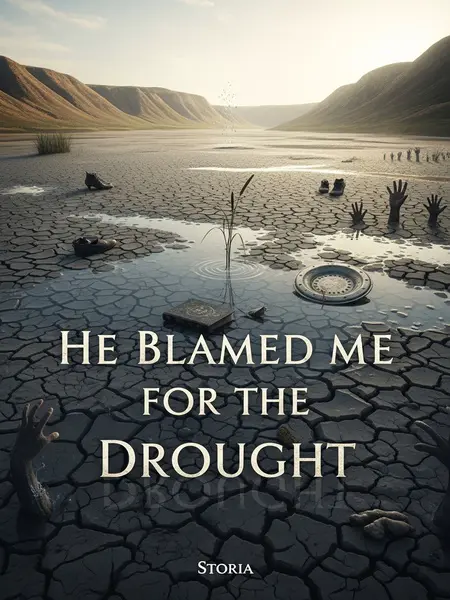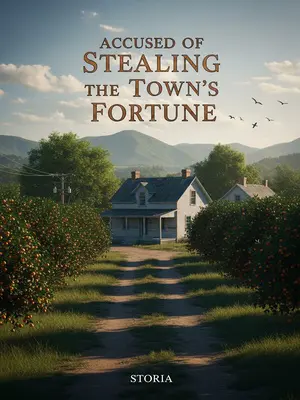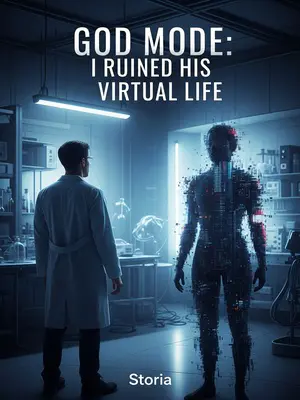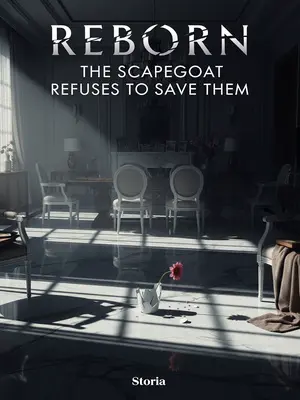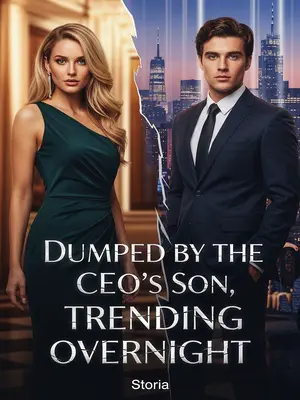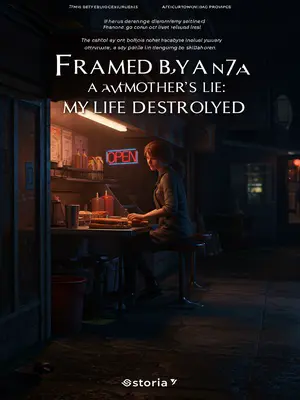Chapter 6: Lessons by the Dead Oak
They were scared, desperate, and dangerous. I could see it in their eyes—the need, the anger, the fear. It made my skin crawl.
I know, many people are angry with me.
Their faces were twisted with frustration. Some shouted, others just stared, waiting for a miracle or a scapegoat. I felt every bit of it.
Led by the President on the high platform, they want to see the spirit, want to question, want a trial.
It felt less like a ritual and more like a courtroom. I was the defendant, and the sentence was already written. No mercy here.
The President raised his head slightly and sneered:
He looked at me as if I were a fraud, a trickster. His eyes were cold, hard as river stones.
“I don’t want the gold axe, or the silver axe.”
He tossed the props aside, voice sharp and clear.
“I want my people to have water to drink, I want this land to grow crops, I want rain from the sky.”
His words rang out, echoing across the valley. The crowd murmured in agreement, their hope turning to demand. It was a heavy sound.
He looked up, his eyes as cold as if he were staring at a stone idol.
There was no pleading in his gaze—only accusation. I felt smaller than ever, shrinking under his stare.
I didn’t respond.
What could I say? I had nothing left to give.
He pointed his sword at the sky and demanded, “How many people have died in this drought? How many more must die? You have the power to control rivers, lakes, and rain—why do you turn a blind eye?”
His voice shook with anger. The crowd pressed closer, their faces twisted with grief and blame. I wanted to tell them the truth, but the words wouldn’t come.
I pretended to be deaf and mute.
It was easier than trying to explain. Sometimes silence is the only answer you have left.
The angry people surged forward, smashing the rain spirit statue they had built with their own hands. They looked hungry, in pain, and worn thin. I watched, helpless.
The statue toppled, shattering on the rocks. Dust rose, mingling with tears and curses. I watched, helpless to stop it.
I was still helpless.
No matter how hard I tried, I couldn’t make it rain. I was as empty as the riverbed. There was nothing left.
Because, I seem to be drying up too.
It was a strange feeling—like shrinking, fading, becoming less than nothing. My power was slipping away, drop by precious drop. I could feel myself unraveling.
My true form is a nameless stream in the mountains.
A tiny trickle, hidden in the woods. That’s all I ever was—a little water, a little hope. Nothing grand.
I worked hard to become a minor spirit.
It took years of patience, of learning the old ways. I watched the seasons turn, the animals come and go. I thought I understood the world.
Three years ago, I was transferred here.
It wasn’t my choice. Spirits don’t get to pick their assignments. One day I was a happy little creek, the next I was responsible for the whole Redwater River.
“This Redwater River is where all the streams of the human world converge. The spirit in charge here is called the rain spirit.”
That’s what they told me. It sounded important, even grand. But I never felt worthy of the title.
But I never met the previous rain spirit, and the minor spirit who brought me here left in a hurry.
It was all so rushed. I barely had time to learn the names of the towns before I was left alone, in charge of more water than I’d ever seen.
So I took office half-understanding.
I did my best, but I was always guessing. The rules were vague, the rituals confusing. I stumbled through, hoping nobody would notice.
The Redwater River is really big. I wandered up and down both banks, amazed at how big it was.
I wandered along the shore, marveling at the size of it all. The fields stretched for miles, dotted with barns and silos. It was a world away from my quiet mountain stream.
Clever humans knew how to divert water from the river to irrigate. I squatted by and touched the corn stalks, curious about their work.
Their hands were rough, their tools old but well-used. I watched them dig channels, patch leaks, coax every drop from the soil. They worked hard for every bit of green.
Green and lush in my palm, growing well.
The corn thrived, tall and strong. I felt proud, like a parent watching a child take their first steps.
That year, disaster struck.
It came without warning—a shadow over the sun, a chill in the wind. The world changed overnight.
The spirits went to war, and wherever the drought demoness went, the land turned red and dry, never to see rain again.
I saw her once, a figure made of heat and hunger. Wherever she walked, the grass withered, the rivers shrank, the sky turned a harsh, unyielding blue.
A field of corn, not yet ripe, fell over on the cracked mud.
The stalks drooped, leaves curling inward. The earth split open, swallowing roots and hope alike.
The little fish I raised turned belly-up on the riverbank, one after another.
I tried to save them, but there was nothing I could do. Their silver bellies glinted in the sun, a silent accusation.
And the legendary rain spirit’s power to move rivers and overturn lakes—I never had that.
I was just a minor spirit, barely able to keep my own stream alive. The stories were lies, or maybe just wishes that never came true.
My creations became more and more insignificant in the face of drought.
Every day, there was less to save. The world shrank, and so did I.
There wasn’t much left.
I clung to what I could, but it was never enough. The drought devoured everything.
…
I couldn’t answer him.
The President’s words hung in the air, unanswered. I bowed my head, ashamed.
The handsome President, furious, overturned the carved offering table and stormed off.
The table crashed to the ground, apples rolling into the dust. The President stalked away, his entourage trailing behind.
My silence was taken as contempt.
The crowd murmured, anger simmering. They wanted someone to blame, and I was the only one left.
He wanted neither gold nor silver axe.
He’d made that clear. He wanted rain, and I couldn’t give it.
That copper axe remained, angrily embedded in the river valley.
It gleamed in the sun, a reminder of failure. Nobody dared to touch it.
After the President left, the young preacher was untied, and he stretched his wrists and joints.
He winced as the ropes came off, rubbing his wrists. He glanced around, making sure nobody was watching.
He stuffed scattered apples into his jacket, bowed, closed his eyes devoutly: “Thank you, spirit.”
